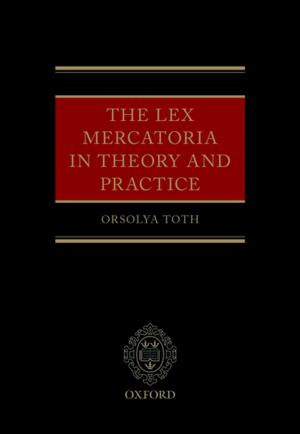When the People Speak:Deliberative Democracy and Public Consultation
Deliberative Democracy and Public Consultation
Nonfiction, Social & Cultural Studies, Political Science, Politics, Practical Politics, Religion & Spirituality, Philosophy| Author: | James Fishkin | ISBN: | 9780191610158 |
| Publisher: | OUP Oxford | Publication: | August 6, 2009 |
| Imprint: | OUP Oxford | Language: | English |
| Author: | James Fishkin |
| ISBN: | 9780191610158 |
| Publisher: | OUP Oxford |
| Publication: | August 6, 2009 |
| Imprint: | OUP Oxford |
| Language: | English |
All over the world democratic reforms have brought power to the people-but under conditions where the people have little opportunity to think about the power that they exercise. Do we want a democracy inspired by Madison or by Madison Avenue? A democracy animated by deliberation or by manipulation? This book examines each of the principal democratic theories and makes the case for a democracy in which the people offer informed judgments about politics or policy. It then goes on toshow how this form of democracy can be made a reality.When the People Speak describes deliberative democracy projects conducted by the author with various collaborators in the US, China, Britain, Denmark, Australia, Italy, Bulgaria, Northern Ireland, and in the entire European Union. These projects have resulted in the massive expansion of wind power in Texas, the building of sewage treatment plants to China, the crafting of budget solutions in a region in Italy, and greater mutual understanding between Catholics and Protestants inNorthern Ireland. The book is accompanied by a DVD of "Europe in One Room" by Emmy Award documentary makers Paladin Invision in London. The film recounts one of the most challenging deliberative democracy efforts with a scientific sample from 27 countries speaking 21 languages.Critics of deliberative democracy say that it will privilege the more educated or that the public is incompetent when it comes to understanding policy issues, and should not be consulted. Others argue that it will increase polarization. Fishkin offers rebuttals for each of these arguments. Combining theory and practice he shows how a more deliberative politics is both practical and compelling.
All over the world democratic reforms have brought power to the people-but under conditions where the people have little opportunity to think about the power that they exercise. Do we want a democracy inspired by Madison or by Madison Avenue? A democracy animated by deliberation or by manipulation? This book examines each of the principal democratic theories and makes the case for a democracy in which the people offer informed judgments about politics or policy. It then goes on toshow how this form of democracy can be made a reality.When the People Speak describes deliberative democracy projects conducted by the author with various collaborators in the US, China, Britain, Denmark, Australia, Italy, Bulgaria, Northern Ireland, and in the entire European Union. These projects have resulted in the massive expansion of wind power in Texas, the building of sewage treatment plants to China, the crafting of budget solutions in a region in Italy, and greater mutual understanding between Catholics and Protestants inNorthern Ireland. The book is accompanied by a DVD of "Europe in One Room" by Emmy Award documentary makers Paladin Invision in London. The film recounts one of the most challenging deliberative democracy efforts with a scientific sample from 27 countries speaking 21 languages.Critics of deliberative democracy say that it will privilege the more educated or that the public is incompetent when it comes to understanding policy issues, and should not be consulted. Others argue that it will increase polarization. Fishkin offers rebuttals for each of these arguments. Combining theory and practice he shows how a more deliberative politics is both practical and compelling.















